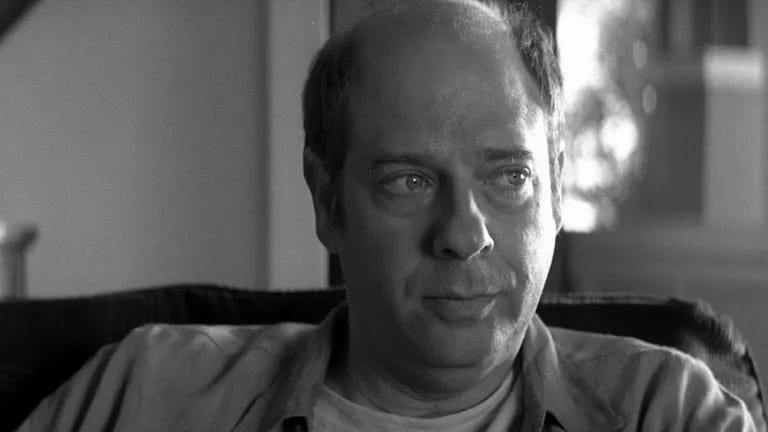
Seen. Called. Empowered. The Legacy of Women in Scripture
April 18, 2025
Trump Kicks Citizen Off Social Security in Anti-Immigrant Purge
April 18, 2025Sinners is a joyously filthy movie: a celebration of the pleasures that come from art and life and living; a rejection of the sorrow that derives from hate and fear and loathing. Writer-director Ryan Coogler’s Depression-era vampire flick is both rooted in the ugly reality of the Jim Crow South and explodes into an exuberant fantasia about the power of music (and movies) to transcend space and time.
Michael B. Jordan plays twin brothers Smoke and Stack, who have returned to their hometown in Mississippi with proceeds (and alcohol) obtained in Chicago as enforcers for Al Capone. Feared hoods in their hometown and veterans of the Great War, they’re here to open a juke joint, a place for the sharecroppers to come and do a little dancing and spend some money. Smoke and Stack’s secret weapon is their cousin Sammie (Miles Caton), who can wail on a guitar and sing the blues with the best of them; he’s got a voice so pure it can pierce the cosmic veil, uniting spirits in the appreciation of music.
Literally, as a handy prologue explains. Sammie’s one of the magical music men, gifted with a vocal talent that can reunite people with lost loved ones and heal the sick. But it also brings trouble in the form of Remmick (Jack O’Connell), an Irish vampire whose status as undead leads to disconnection from the ancestral plain, meaning that he can never again see his loved ones … unless this music man can call them forth. And if Remmick has to kill every single person in this town to grow his bloodsucking collective and make that spiritual connection happen, well, it’s a small price to pay.
I love the use of music in Sinners, and specifically the way music can both break down barriers within communities and erect barriers between communities. In what will likely go down as one of the best sequences of the year, Coogler and his team take us inside the juke joint while Sammie lets loose, and what we see is the cinematic representation of art as an idea, art on a continuum, art spanning the generations: from the tribal priests in Africa to the DJs spinning records in Brooklyn. It’s like Charles Dickens put ghosts past, present, and future from every adaptation of A Christmas Carol all in the same room at Fezziwig’s annual Christmas party in order to show us the breaks and the continuities in how that story has been told and retold over the centuries.
And while that sequence shows the ancestors of a Chinese family that’s doing the cooking dancing along, music isn’t quite treated as a universal salve; there’s a funny moment when Remmick and his fellow (white) bloodsuckers play a banjo-based tune with a little choreographed dance that can only be described as hokey. Not talentless, mind you—the hulking doorman Cornbread (Omar Miller) gives it an appreciative nod and a “not bad”—but decidedly out of step with the smoky, soulful blues within the building. It isn’t until a little later, when the vampires have converted a few of the partygoers, that Remmick’s Michael Flatley impression takes on a more powerful—even sinister—vibe. A deeper bass accompanies the fiddle, a driving beat. He and his brood are getting as sweaty outside as the folks were within. Through his vampirism, he has appropriated the blues into his own work and given it a wicked tinge; he’s gained rhythm but still lacks the soul of the blues. For that, he’ll need Sammie’s skills.
Sinners has some of my favorite performances of the year, maybe from the last several years. It’s obvious everyone onscreen is having a magnificently good time with the material Coogler has presented them. Michael B. Jordan has always been a mild ham, and Coogler has given him some parts to sink his teeth into—his Killmonger remains one of the best villains in the MCU, in no small part because Jordan really leaned into it—but here he gets to play twin brothers, one hard-nosed, the other a little bit crazy, both of them willing to throw down at a moment’s notice if the situation calls for it. And O’Connell plays Remmick as a sort of demented Lord of the Dance, doing Irish jigs in his own effort to conjure up the spirits of the past, his own way of creating community through music and mixture.
The supporting cast is also wonderful, led by Delroy Lindo as Delta Slim, harmonica man and juke-joint pianist. One notable aspect of Sinners is how darkly funny it is, and Delta Slim’s the sort of guy who has seen it all, experienced it all, and is still flummoxed by the insanity unspooling before him (and, by extension, us). He also has some of the best laugh lines in the movie, which leavens the horror with a healthy dose of humor.
Sinners is a crowd-pleasing historical romp; horrifying yet funny, haunted by the past but not beholden to it. It absolutely killed with my audience. I imagine it’ll kill with yours, too.

If you happen to be in the Dallas area, as I am, there are a couple of cool film-related events in the coming weeks.
First up is the USA Film Festival (April 23–27), which is showing a free (that’s right, free) screening of Memento at the Angelika Film Center on Mockingbird on the evening of Wednesday, April 23 with none other than Sammy Jankis himself, Stephen Tobolowsky, in attendance. Also that evening at almost the exact same time is another free (that’s right, free) screening of the new movie The Last Rodeo, with stars Neal McDonough (Minority Report, Tulsa King) and Mykelti Williamson (Heat, Forrest Gump) in attendance. Here’s a full schedule; you can reserve tickets by scanning the QR code at the top of this PDF.
Then there’s the Dallas International Film Festival, which has some promising-looking films like The Salamander King, Due West, and Motherland rolling out April 25 through May 1 at various Dallas venues. You can check out the full lineup and film guide here.
On this week’s Bulwark Goes to Hollywood, I went kind of deep with my guest, Andrew Ortenberg of Briarcliff Entertainment, about the real finances of indie distribution. I hope you give it a listen:
One thing that might be worth clarifying is that that whole discussion is about distribution, not production. Production is a whole different beast with a whole separate set of costs. When Andrew mentions “minimum guarantees,” what he’s talking about are the big splashy numbers you hear coming out of Sundance. Take Magazine Dreams: Fox Searchlight spent some amount of money ($2 million or $10 million, depending on whom you believe) to acquire domestic distribution rights for the film starring Jonathan Majors as a bodybuilder. That money went to the film’s producers and backers to cover the cost of production; Searchlight would, theoretically, have spent some further amount of money on distribution when the film hit theaters, recouping that money from box office and home video rentals.
After Majors’s arrest in 2023, Searchlight got out of the deal (there was a morals clause) and the producers had to pay back the purchase price. Eventually, the film wound up with Briarcliff, which paid nothing up front but backed the cost of putting the film in 800 or so theaters. That’s not nothing—prints and advertising (“P&A”) covers ads, posters, and digital cinema packages, none of which are free—but it’s way cheaper than getting into a bidding war. (Briarcliff CEO Tom Ortenberg, Andrew’s father, told the Wall Street Journal they spent $2 million on P&A.) And securing a theatrical run in the United States has big economic benefits elsewhere: you can ask for more on VOD; you heighten the visibility of the movie for that VOD audience; and you can secure richer distribution deals overseas.
Whether or not the producers will get made whole, I can’t say; they were in a tough spot, given all the bad publicity surrounding Majors and the timidity of modern distributors when it comes to dealing with bad publicity. (I’d imagine whatever revenue they generate falls into the “Well, it’s better than nothing, I guess” territory.) But Briarcliff, as distributors rather than producers, had relatively limited exposure. And that’s something to keep in mind any time you see a movie from a distributor like Briarcliff or Bleecker Street open a movie with a relatively soft $800,000–$1.5 million three-day weekend. Their investment is limited and they’re probably making most of their money once the film hits VOD anyway.
Great Job Sonny Bunch & the Team @ The Bulwark Source link for sharing this story.




